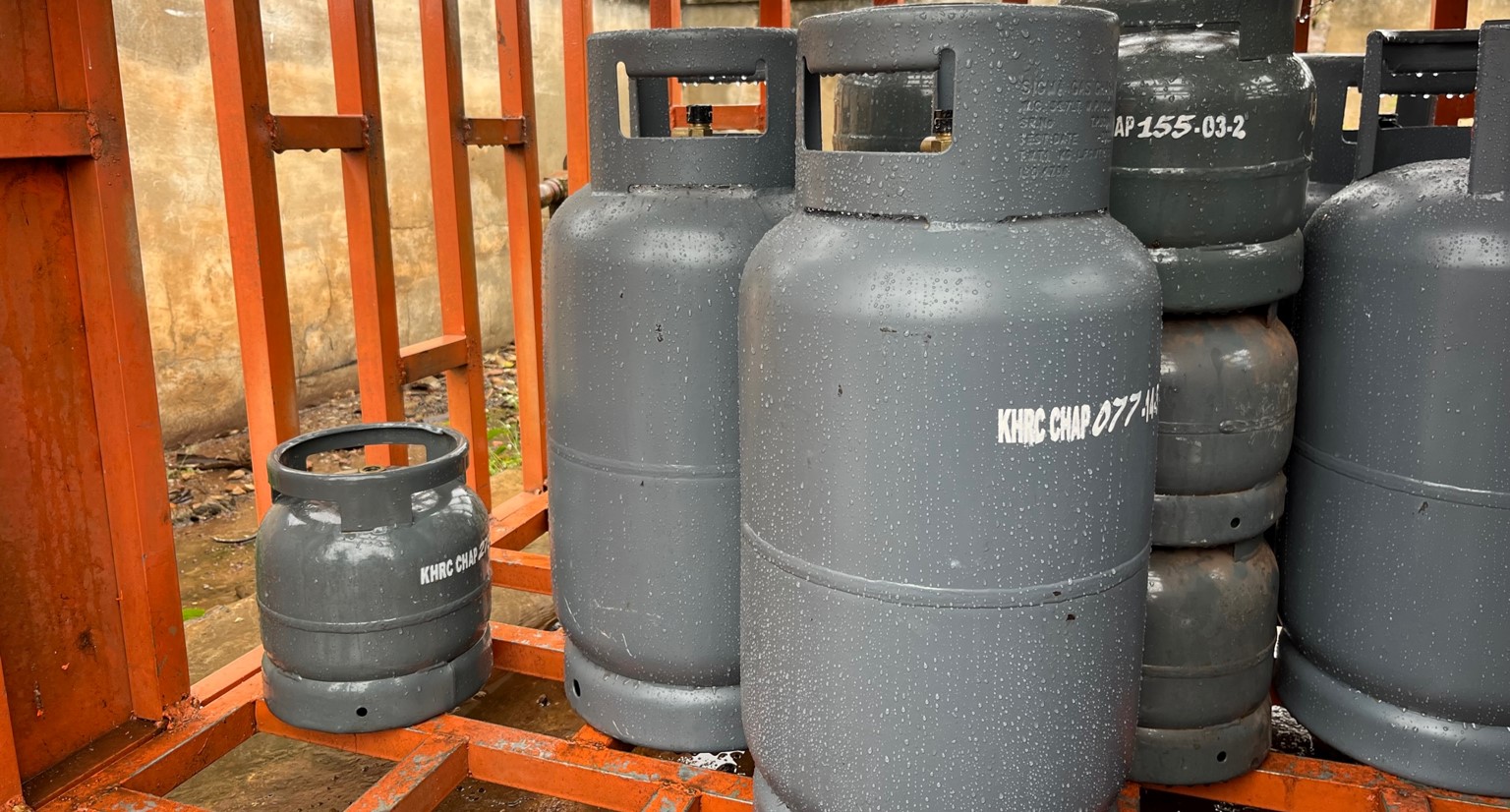Using Digital Finance to Incentivize Clean Fuel Transitions

Cylinders of LPG being delivered | Photo Credit: Kintampo Health Research Centre
Context
Approximately 3 billion people around the world rely on traditional fuels such as charcoal and kerosene for cooking, resulting in millions of premature deaths each year, as well as significant deforestation and greenhouse gas emissions. Cleaner fuels such as liquid petroleum gas (LPG) could reduce the time needed to cook, benefit human health and the environment, but dependence on traditional fuels remains high in Ghana, particularly in rural areas and among low income Ghanaians. Today, most customers bear the costs of an LPG cylinder refill in one large payment, rather than across multiple smaller payments as fuel is needed. Although LPG may even be cheaper in the long run, this large upfront cost and the distance customers must travel to a refill site act as barriers to adoption and sustained use.
Digital financial services including payment platforms, mobile savings and digital credit, have the potential to lower financial barriers to switching to LPG. Because of this, researchers are partnering with Zeepay, a leading digital finance company in Ghana, to develop GasPay, a phone-based application for linking households with LPG suppliers. GasPay is being designed to reduce transaction costs, as well as provide complementary financial tools to encourage savings and provide credit to ensure continuity in clean fuel supply.
Study Design
In collaboration with Zeepay, the team will pilot versions of GasPay to optimize features targeted to low income households in greater Accra, focusing on a mix of existing customers and new enrollees. Findings will inform a larger randomized trial to evaluate impacts on expenditures, consumption, and health, as well as to inform the Government of Ghana’s LPG promotion policy.
First, the research team will work with the partner to deploy different versions of GasPay, varying:
(i) the price of home deliveries of LPG,
(ii) availability and size of discounts for scheduling ahead or for group orders,
(iii) savings incentives such as cash rewards for consistent contributions to the wallet,
(iv) allowance of negative balances, acting as a credit mechanism whereby consumers can borrow small sums if they run out of fuel but lack the money needed to purchase LPG,
(v) marketing approaches to bringing potential users into the system.
The research team will use Zeepay’s administrative data and two rounds of household surveys to evaluate outcomes including take up of GasPay, scheduling and purchasing of LPG, and use of application features such as credit. They will also vary both how GasPay is described and which features are offered. Pairing this with a baseline survey to measure demographic information and fuel use, researchers will test the effect of specific features and marketing on take up.
In addition, a second household survey will be conducted roughly 6 months after the first to measure three main types of outcomes not observed in the administrative data:
(i) Take up of a payment platform along with a digital credit and savings account that will be provided on participants’ phones,
(ii) LPG use, measured through both the survey and transactions on the GasPay platform
(iii) Household level outcomes including use of traditional fuels for cooking, attitudes toward LPG, health, and understanding of the payment platform features.
Results and Policy Lessons
This project is ongoing, results are forthcoming.

